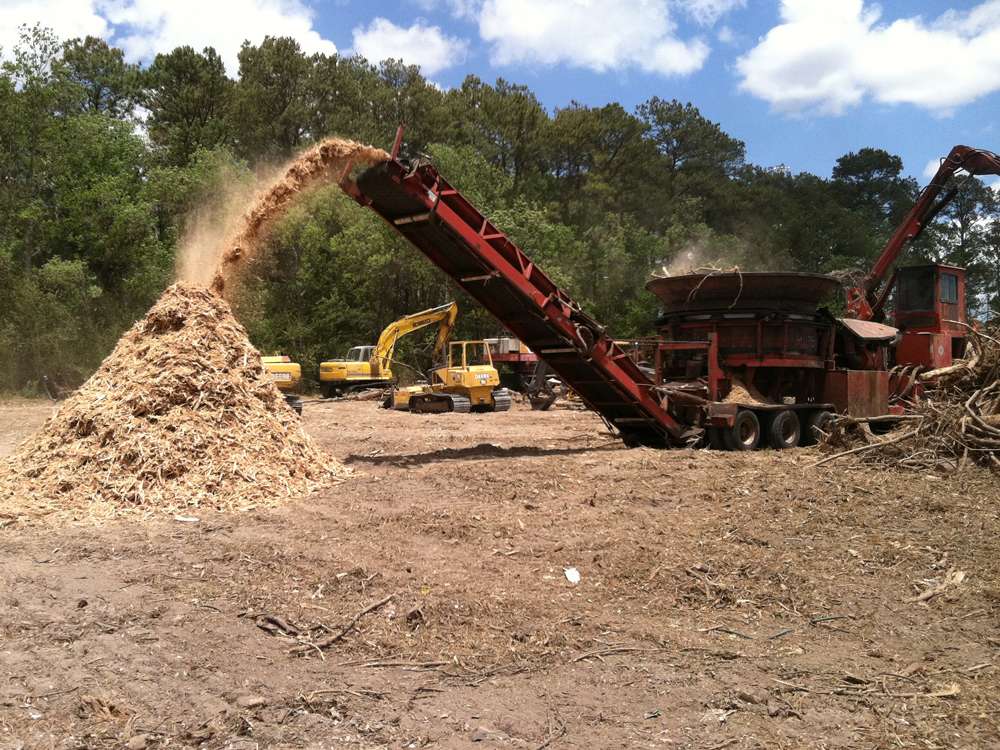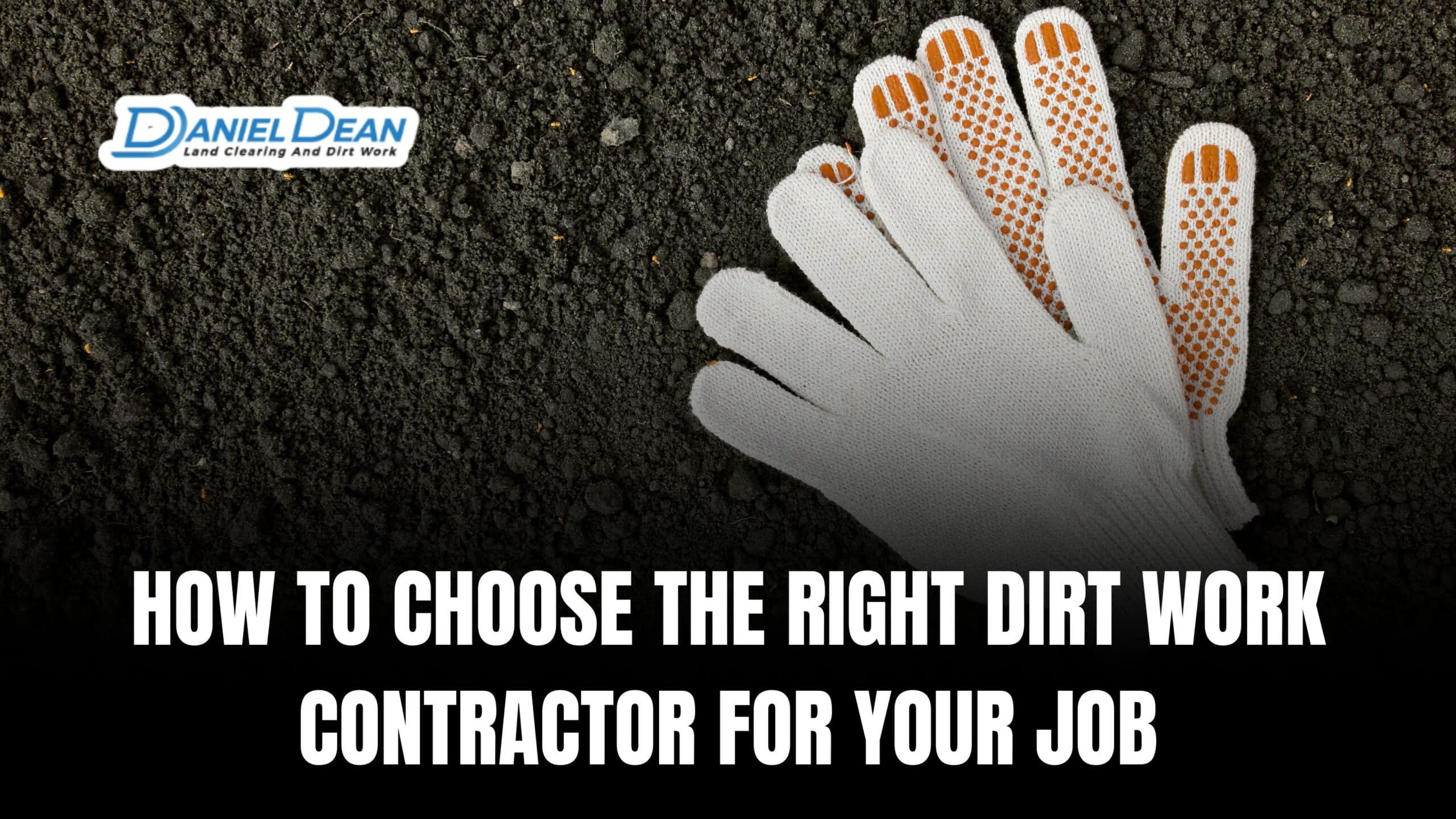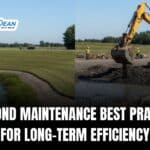How do you choose the right dirt work contractor for your project? With over 238,000 excavation contractor businesses across the U.S. offering dirt work services, it can be challenging to know where to start. However, the right contractor can make all the difference in the success of your project. In fact, projects with comprehensive site preparation, including dirt work, experience 30% fewer delays due to unforeseen ground conditions.
Choosing a skilled and reliable contractor ensures that your dirt work is done safely, efficiently, and to a high standard.
In this blog post, we’ll help you navigate the process of choosing a dirt work contractor. From understanding the key qualities to look for to checking credentials and assessing costs, we’ll guide you through the steps to find the right dirt work solutions for your needs. Let’s dive into how to choose a dirt work contractor that will get the job done right.
Why Hiring the Right Dirt Work Contractor Matters
Hiring the right dirt work contractor is essential for the success of your project. Poorly executed dirt work can lead to costly delays, rework, and even safety issues. A qualified contractor with the right experience and equipment ensures that your project is completed on time and within budget.
Dirt work involves a variety of tasks, including excavation, grading, land clearing, and drainage solutions. The complexity of these tasks requires specialized knowledge and expertise. A competent contractor can assess your project’s unique requirements, handle any challenges that arise, and deliver high-quality results.
Additionally, the right dirt work contractor can save you money by avoiding mistakes that might need costly fixes later. Whether it’s ensuring proper drainage to prevent flooding or choosing the right equipment for soil type, their expertise is invaluable.
Key Qualities to Look for in a Dirt Work Contractor

When you’re choosing a dirt work contractor, there are several important qualities to look for that can help ensure the success of your project.
Experience and Expertise
When it comes to dirt work, experience and expertise are non-negotiable. The best dirt work contractors bring years of hands-on experience, particularly in the type of project you’re undertaking. Whether you’re clearing land for development, grading a site for proper drainage, or preparing the ground for construction, the right contractor will have extensive knowledge of the best techniques, tools, and materials for the job.
They should be able to assess your site, identify potential challenges, and offer proactive solutions that save you time and money. Contractors with a broad range of expertise can handle unexpected obstacles like rocky soil or unstable ground conditions, reducing the risk of project delays. Don’t just take their word for it—ask for specific examples of similar work they’ve done and be sure to request references or case studies from past projects.
Proper Equipment
Dirt work requires a range of specialized equipment to ensure efficiency, precision, and safety throughout the project. The right machinery can significantly impact the outcome of your work, so it’s essential to choose a contractor who uses state-of-the-art, well-maintained equipment tailored to the specific needs of your project.
Key equipment for dirt work projects typically includes:
- Bulldozers: Used for grading, pushing large amounts of soil, and clearing land. Essential for creating the foundation of a construction site or for land clearing.
- Excavators: Ideal for digging, trenching, and lifting heavy materials. These versatile machines are crucial for tasks like digging foundations, grading, or installing drainage systems.
- Skid Steer Loaders: Perfect for smaller, more precise tasks like moving dirt, gravel, or other materials in tight spaces. Skid steers are essential for finishing touches and detailed grading.
- Dump Trucks: Needed for hauling large quantities of dirt, gravel, or debris from the job site. A reliable dump truck fleet ensures efficient transport of materials to and from the site.
- Compactors: Used for soil stabilization and ensuring a solid, firm surface. Compactors are especially important for projects requiring precise soil compaction for foundations or roads.
- Laser Grading Systems: Used to achieve precise leveling and grading with minimal error. This equipment is necessary for jobs that demand a high degree of accuracy, such as construction sites or landscaping projects with specific slope requirements.
- Backhoes: Versatile machines used for digging, lifting, and moving materials. They’re commonly used in smaller excavation jobs or for digging trenches for utilities or drainage systems.
Choosing a contractor who owns and maintains this equipment ensures that the job will be done efficiently, accurately, and with fewer delays. Poorly maintained or outdated machinery can lead to costly setbacks, increased safety risks, and inefficiencies. A contractor who invests in modern, well-maintained machinery will deliver high-quality results, ultimately saving you time and money over the course of the project.
Attention to Detail
Dirt work is a precise job, and the best contractors understand that attention to detail is essential to a successful project. Small oversights, such as improper grading or inadequate drainage planning, can lead to significant issues down the line, from flooding to structural instability. For example, improper grading can cause water to pool in certain areas, which can lead to soil erosion and damage to landscaping or structures.
The right dirt work contractor will take the time to thoroughly plan and execute every step of the project. They will ensure that the land is graded correctly, with proper slopes and drainage to prevent future issues. A quality contractor will also ensure that the job site is left clean, with minimal disruption to surrounding areas.
From setting the right depth for excavation to choosing the proper backfill material, no detail will be overlooked. This level of attention sets the best contractors apart and ensures that your project meets both industry standards and your personal expectations.
Licensing and Insurance
When it comes to hiring a dirt work contractor, licensing and insurance are not just administrative tasks—they are vital protections for both you and the contractor. Ensuring that a contractor holds the proper licenses and carries the necessary insurance can prevent future legal and financial complications, and help guarantee that your project meets safety standards and local regulations.
Licenses
- General Contractor License: In many states, a general contractor license is required for dirt work projects that exceed a certain value or involve specific types of construction work. Make sure the contractor holds a valid general contractor license if it’s required in your state. This ensures they have the expertise and knowledge to manage the project professionally and in compliance with state laws.
- Specialty Contractor License: Some states mandate specialty licenses for excavation or dirt work. A contractor with this specific certification has the necessary skills to carry out specialized tasks such as land clearing, grading, and trenching. Verify that the contractor holds any state-required specialty licenses for dirt works to ensure compliance.
- Local Permits: Local permits are often required for dirt work, particularly for excavation and zoning-related tasks. Be sure the contractor has obtained the necessary permits for your job site, whether it’s for excavation or site preparation. This ensures that all work complies with zoning laws and other local regulations, preventing potential legal issues down the line.
Insurance
Insurance is a critical aspect of choosing the right dirt work contractor. Ensure that the contractor carries general liability insurance, which covers property damage or bodily injury on the job site, protecting you from potential claims.
Additionally, workers’ compensation insurance is necessary if the contractor has employees, as it covers medical expenses and lost wages for any work-related injuries. Equipment insurance is also important to protect the contractor’s machinery, while commercial auto insurance ensures accidents involving company vehicles are covered.
Lastly, for projects involving environmental risks, pollution liability insurance safeguards against potential contamination issues. Always request proof of insurance to protect yourself and your investment.
Transparent Communication
Finally, transparent communication is essential for a successful dirt work project. A contractor who provides clear, open communication from the outset will help avoid misunderstandings and ensure that your expectations align with the project’s scope and timeline. During your initial conversations, make sure the contractor listens to your needs, answers your questions in detail, and offers suggestions or solutions to potential problems.
Additionally, a contractor should provide clear, written estimates that outline all costs, including labor, materials, and equipment. If unexpected issues arise, they should keep you updated regularly and be willing to discuss any changes to the budget or timeline. This level of communication fosters trust and ensures that you are always informed throughout the project.
Questions to Ask Potential Contractors
Before hiring a dirt work contractor, asking the right questions is crucial to understanding their capabilities and ensuring they are the right fit for your project. Here are some key questions to consider that can help you assess their qualifications and suitability for the job:
- What experience do you have with projects similar to mine?
This question is essential for determining whether the contractor has the relevant expertise for your specific project. Whether you need land clearing, grading, drainage solutions, or excavation, a contractor with experience in your particular type of dirt work is more likely to execute the job efficiently and to a high standard. Ask for specific examples or case studies that show their expertise in similar projects. - Can you provide references or examples of past work?
A reputable contractor should have a solid portfolio of completed projects and references from satisfied clients. Request references or view photos of their previous work to assess the quality of their services. Customer feedback can give you valuable insights into the contractor’s reliability, professionalism, and ability to meet deadlines, as well as how well they handle communication and problem-solving. - What types of equipment do you use?
The machinery used in dirt work is just as important as the contractor’s skill. Understanding the equipment a contractor uses can tell you if they are equipped to handle the size and complexity of your project. Make sure the contractor uses modern, well-maintained machinery such as bulldozers, excavators, and skid steer loaders. Inquire about any specialized equipment they may have for tasks like precise grading, soil compaction, or land stabilization. - What is your project timeline?
It’s important to discuss the expected timeline for the project up front. Understanding the contractor’s schedule and their ability to meet your deadlines will help you manage expectations. Be clear about any time-sensitive aspects of your project and ask the contractor if they foresee any potential delays. A reputable contractor should be able to provide a realistic timeline, along with a breakdown of milestones to track progress. - How do you handle unforeseen issues or challenges during the project?
Dirt work projects often encounter unexpected challenges such as difficult soil conditions, weather delays, or hidden obstacles. Ask the contractor how they approach problem-solving and how they handle unforeseen issues. A professional contractor should have a contingency plan in place to manage complications without significant delays or cost overruns. Make sure they are transparent about how they would address potential issues and keep you informed throughout the process.
By asking these questions, you’ll gain a better understanding of the contractor’s experience, work quality, equipment, and problem-solving capabilities. Choosing a dirt work contractor with the right qualifications and approach ensures that your project will run smoothly and be completed to your satisfaction.
How to Check Credentials and Experience
Verifying a dirt work contractor’s credentials is a critical step in the hiring process. Here’s how to go about it:
- Check Licensing: Ensure the contractor holds the necessary licenses required by your state or local government. This verifies that they have met the minimum standards for professional work.
- Ask About Insurance: Request proof of general liability insurance and worker’s compensation coverage. This protects you in case of accidents or damage during the project.
- Verify Their Experience: Look for a contractor with a proven track record in handling dirt work projects similar to yours. Ask for a portfolio or examples of past work to assess their expertise.
- Online Reviews and Testimonials: Search for online reviews on platforms like Google or Yelp. Read through feedback from past clients to gauge the quality of service and reliability.
- Check for Complaints: Research the contractor’s history with consumer protection agencies like the Better Business Bureau. A lack of complaints or a strong history of resolving issues is a positive indicator of professionalism.
Understanding Cost and Project Estimates
When discussing cost with a dirt work contractor, it’s essential to get a detailed, written estimate that includes all aspects of the project. Here are some things to consider:
- Detailed Breakdown: The estimate should include a breakdown of labor, materials, equipment, and any potential additional costs. This helps you understand where your money is going.
- Hourly vs. Fixed Rates: Some contractors charge by the hour, while others may offer a flat rate. Discuss the best pricing structure for your project and make sure it aligns with your budget.
- Hidden Costs: Be wary of hidden fees. A reliable contractor should be transparent about any potential costs, such as disposal fees or unexpected complications.
- Payment Terms: Make sure you understand the payment schedule before work begins. A reputable contractor will offer clear terms, including deposit requirements and payment milestones.
- Estimate Validity: Verify that the estimate is valid for a reasonable period. Dirt work projects can sometimes have fluctuating costs due to factors like weather conditions or material availability.
FAQs
What are the criteria for selecting a contractor?
When selecting a dirt work contractor, key criteria include relevant experience, proper licensing and insurance, well-maintained equipment, and a solid reputation. It’s also important to assess their communication skills and ability to meet project deadlines.
What are the three methods of selecting a contractor?
- Direct Research: Search online and check contractor websites for experience and reviews.
- Word of Mouth: Ask for recommendations from trusted individuals with similar projects.
- Request for Proposals (RFP): Compare multiple contractors’ proposals based on qualifications and pricing.
How to find good contractors?
Look for contractors through online directories, local listings, and referrals from trusted sources. Check reviews, past projects, and certifications before narrowing down your options.
Final Thoughts on How to Choose the Right Dirt Work Contractor
Choosing the right dirt work contractor is essential for ensuring your project is completed efficiently, safely, and to a high standard. By focusing on experience, proper equipment, attention to detail, and clear communication, you can avoid costly delays and mistakes. Be sure to check licenses, insurance, and references before making your decision. By asking the right questions and verifying credentials, you’ll gain confidence in your contractor’s abilities and commitment to your project.
Now that you know what to look for, take the next step in your project by reaching out to Daniel Dean. With years of experience and a reputation for quality work, Daniel Dean is ready to tackle your dirt work needs. Contact us today to get started and ensure your project is in capable hands!






